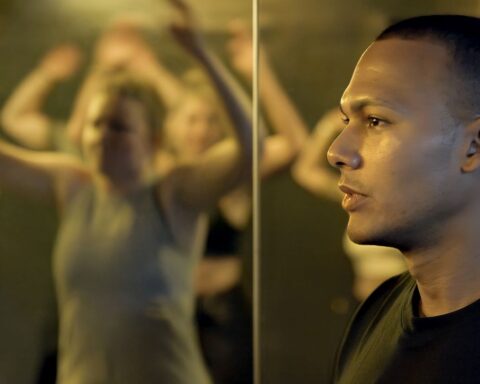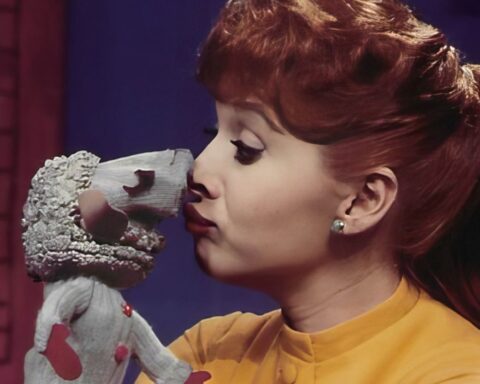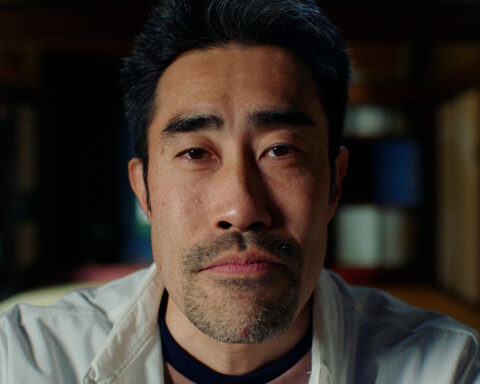In 1982, the legendary British post-punk band Gang of Four, who were surely too cool to get an invitation to play alongside the “We Are the World” crowd, released an incendiary single called “To Hell With Poverty.” It’s probably their signature track, and certainly the most intemperate screed about wealth inequality to storm the U.K. top 40. The song is a PSA wrapped in the sonic equivalent of barbed wire, with singer Jon King barking truth to power over angry, slashing guitars. “In this land right now,” he gripes, “some are insane, and they’re in charge.”
Thirty years later, “To Hell With Poverty” sounds just as catchy and maybe even more caustic. One doesn’t have to be a student of economics to know that the divide between haves and have-nots has stretched into a yawning and possibly bottomless chasm. In fact, the broad strokes of the post-globalization scenario—where money is an ephemeral rumour, corporations operate like sociopaths and Wall Street resists occupation—are so well known that some are hesitant to reiterate them for fear of redundancy. We know that the news is bad, goes this line of thinking, so why bother dealing with it anymore?
Running counter to this see-no-evil/hear-no-evil attitude is Why Poverty?, an international crossmedia initiative that’s both a spiritual sequel to 2007’s successful Why Democracy? campaign and a freestanding initiative that will host the global broadcast premieres of new features by some of the world’s leading documentary filmmakers. Beginning on November 25, TVO will join more than 60 international broadcasters (up from 48 for Why Democracy?) in presenting eight documentaries looking at poverty from a variety of angles and vantage points, including Oscar-winner Alex Gibney’s Park Avenue.
“The whole goal of this project is precisely to break the frame of how people typically think about poverty and ‘poor’ people,’” says TVO’s commissioning editor, Jane Jankovic. “It’s about illuminating viewers about how poverty happens and how it perpetuates. It’s about inequality and the widening gap between rich and poor.” Gibney’s film takes this dichotomy and runs with it, pointing out that Park Avenue’s stretch of New York City is home to some of the country’s richest power brokers as well as its poorest congressional district—-twin microcosms on either side of the Harlem River. As in his previous films on Enron and Abu Ghraib, Gibney uses a combination of methodical argumentation and sharp, poison-tipped rhetoric to score points, but this one has an uncommon urgency because of its connection to this fall’s U.S. presidential election. The parade of American political hopefuls who have made the pilgrimage to the gilded grounds of 740 Park Avenue—the historic address of Chryslers, Bouviers, Rockefellers and so many other wily billionaires and golden-parachute jumpers—recently made room for Mitt Romney (who, truth be told, could probably afford to buy the place outright).
Actually, both members of the Republican ticket make cameos in Park Avenue. Gibney also focuses on vice-presidential candidate Paul Ryan and his fondness for the writings of Ayn Rand, a literary passion he’s subsequently had to downplay after the religious members of the rightwing base expressed concern over the Atlas Shrugged author’s loud-and-proud atheism.
“The focus was actually on Ryan before he got the VP nod,” explains Gibney via email. “He happens to be the most visible politician who is also an Ayn Rand devotee. And Romney was also organic to our story because he went to [740 Park Avenue] to get cash.” Gibney says that he was trying to make a film that tuned the topic of poverty inside out: “I wanted to focus more on wealth than on poverty. I was interested in the psychology of the ultra rich. They think they are doing God’s work by being as selfish as possible. What a convenient economic religion!”
This may be a case of a filmmaker preaching to the converted, but his oration has an uncommon force: Park Avenue is a scathing polemic. But there are also more balanced films on display, like Bosse Lindquist’s Give Us the Money, which examines whether or not the fundraising, mic-rocking exploits of Live Aid founder Bob Geldof and his wraparound sunglasses-wearing running mate Bono have really made a difference in turning the tide of African poverty. The veteran Swedish documentarian got present-day access to his famous subjects, but he doesn’t fawn all over them. The film describes how pop musicians can hold politicians and concertgoers in thrall without wholly submitting to that spell itself.
“If you asked people who they thought best represented African views on poverty, they would probably come up with a list of celebrities,” says economist Dambisa Moyo at one point in the film. “As an African, I think that that is fundamentally flawed.”
The film is hardly a takedown of its famous subjects, however: their good intentions are given fair consideration, and so are the roads they may have helped to pave. Bono’s decision to “shed his liberal rock star credibility” by trying to work with George W. Bush to address the AIDS crisis in Africa gets unpacked in compelling detail: was Dubya’s surprising bout of “compassionate conservatism” really about occupying a piece of moral high ground in the run-up to the Iraq war? “I think we used him, and that he wanted to be used,” opines Bono. The question of whether he’s telling it like it is or assuaging his conscience is left open.
Give Us the Money also raises questions (some of them voiced by its famous subjects) about where the money raised by much-publicized (and patronized) events like the Live Aid concerts actually went. Danish director Christoffer Guldbrandsen’s Stealing Africa goes even deeper into the nuts-and-bolts of fiscal misappropriation on the continent, using the example of Zambia, a resource-rich country whose inhabitants are nevertheless largely unemployed, to examine how unethical accounting practices and the privatization of heavy industry line the pockets of overseas CEOS. Guldbransen goes over the story of how the ex-Zambian president Frederick Chilupa was accused of extorting $46 million of public money, but the film is mostly about the sordid history of the Swiss multinational trading company Glencore and its CEO Mark Rich, a poster child for white-collar crime who made oil deals with Iran during the 1981 hostage crisis yet received a presidential pardon from Bill Clinton in 2001 (due in no small part, it would seem, to Rich’s wife’s campaign contributions).
In true muckraking fashion, Guldbrandsen follows Glencore’s slimy trail through questionable dealings with the EU and the alleged manipulation of international tax regulations to cut down on their payments in Zambia, thus reducing the revenues for the country’s workers (what few of them there are, anyway). The evidence piles up like copper tailings— and that analogy may not even be toxic enough to describe the environmental and economic fallout of the situation in Zambia— but the satisfaction of having light shed on shady dealings is undercut by the revelation that neither a court of law nor a court of public opinion can necessarily bring them down. The film concludes on a note of total and utter frustration: In 2008, Glencore became the world’s largest IPO, with a bevy of international investors.
Structurally speaking, Stealing Africa is designed a little bit like a Google Map: It just keeps pulling back to show a bigger and bigger picture. But in terms of sheer scope, none of the Why Poverty? films can compete with Ben Lewis’s Poor Us, which is an expose filtered through a thought experiment. In the slow, deliberate cadences of a stage hypnotist, a narrator talks us through the end of a hard working day; we return home and flip on the television, regarding the news of global economic crisis with “a mixture of sorrow and cynicism.” From there, the film takes on the form of a dream torn from the collective unconscious: a guided, elegantly animated tour through the entire history of poverty.
It sounds like Lewis is biting off more than he can chew, but there is a fine balance between the spare, stylized visuals and the information-heavy talking-head segments between them (which include contributions from Nobel laureate and economist Joseph Stiglitz). If there’s a danger of simplifying the complex nature of economic inequality through the ages by literally caricaturing its effects onscreen, there’s also something to be said for the resulting sense of concision and accessibility. It’s easy to imagine this fastpaced and very stylish-looking movie connecting with younger viewers.
There are references in the narration to Oliver Twist, but if Poor Us evokes any Charles Dickens novel, it’s the end of A Christmas Carol. Its bent, struggling animated figures are the ghosts of poverty past, present and future, and the film’s abrupt ending is literally a wake-up call (a similar tactic to Jennifer Baichwal’s recent Margaret Atwood adaptation Payback, which even more explicitly builds on the story of Ebenezer Scrooge).
The Canadian contributions to Why Poverty? are more modestly scaled and that’s entirely by design. Under the direction of Jerry McIntosh, TVO commissioned ten short films about poverty in Ontario that were unveiled on the network’s website beginning on October 17. “People think we don’t really have poverty here,” says Jankovic. “They think about mass famine on the plains of Africa and dismiss the occasional homeless person as someone with a problem that can’t be fixed. These shorts are a counter to that naïveté.”
The most edifying of the shorts may be Min Sook Lee’s Teo in Toronto, which in less than five minutes sketches two memorable characters: Evelyn, an activist specializing in the rights of migrant workers, and Teodoro, a Mexican man who has been working in Canada for over 15 years. The film is actually a follow-up to Lee’s 2001 documentary El Contrato, which featured the same subjects. Interviewed via email, the director calls the earlier film a “formative experience” and says that she was compelled to return to Teodoro’s story a decade later.
“Migrants are a largely invisible labour force in Canada,” says Lee. “Their lives are unknown, and their labour is expected to be machine-like without the interruptions that punctuate most of our working lives—children’s birthdays and illnesses, visiting their families and so on. They are modern-day indentured labourers and we’ve created many employment programs that instill a very Canadianized form of segregation that has apartheid dimensions.”
In Lee’s film, Teodoro is taken to a community garden in Parkdale in Toronto to meet the organizers, who tout “food security” and invite him to help them prepare a hot-pepper sauce with their on-site produce. Looking around the modest garden, Teodoro tells his hosts that he thinks they’re rich because they have food growing all around them. It’s a cheerful sentiment that is taken on its own terms and doesn’t obviate the larger reality: Lee includes a shot of a squeegee kid approaching Evelyn’s car on the drive to Toronto. It’s telling that Lee goes out on a shot of one of Teodoro’s new friends wincing at the kick of the sauce recipe—a little joke, perhaps, on the jolt provided by the arrival of an outsider with real baggage into an insular community.
Igor Malakhov’s The Treasure is also affirmative in tone, though it’s laced with an unmistakable melancholy. After a series of person-on-the-street interviews in which the subjects rattle off lists of their most prized possessions (highlighted by one pretty young woman’s unexpected choice of her axe), Malakhov introduces his protagonist: an unnamed, middle-aged homeless woman dug into a corner at Queen and Bathurst in Toronto. He asks her the same question as the others in the short: what is her most valuable possession? She says it’s her journal— a weathered pink notebook that she says “shows me how far I’ve come and how good I’m doing and how bad I’m doing…and lately it’s how good I’m doing.”
It’s not so much that the images of her distress contradict her words as these elements heighten and deepen one another— and Malakhov’s gaze eschews simple pity for a more productive mixture of curiosity and empathy. “I kept running into various people who were not so well off, all of whom seemed to have these interesting objects,” says Malakhov, recalling the project’s genesis. “I projected this onto my own life. Two years ago I had to leave my home country, Russia, in a rush and could take only the most valuable things with me. What were my most valuable possessions?” He says that gaining his subject’s trust wasn’t necessarily easy: “People can immediately sense if you are sincere in your interest in their lives, or if it’s fake. I enjoyed that process even if it was slow-paced.”
The Treasure is executive-produced by Shelley Saywell, who is current filmmakerin- residence at TVO’s Doc Studio. Malakhov credits her with being his mentor. “I loved Igor’s idea because it was about things that meant something to people who we perceive to have nothing,” comments Saywell, who is also one of the judges for the Doc Studio contest on November 28, where filmmakers are invited to submit their own shorts on the theme of poverty. The winner will be broadcast next year on TVO in prime time.
“I think that the main idea behind Why Poverty? and also behind the contest would be to try to see that topic in a new and evolving way,” says Saywell. “We read daily that the numbers of the poor are growing and that the middle class is dwindling, and that the divide between the rich and the poor is becoming more extreme. But I also think that the preconceptions of how and why people fall into poverty are being challenged. The short-film format can be so powerful, and I’m excited to see the end results. I think that the film I’m looking for [in the context] is the one that makes me think ‘I never thought of it that way.’”











